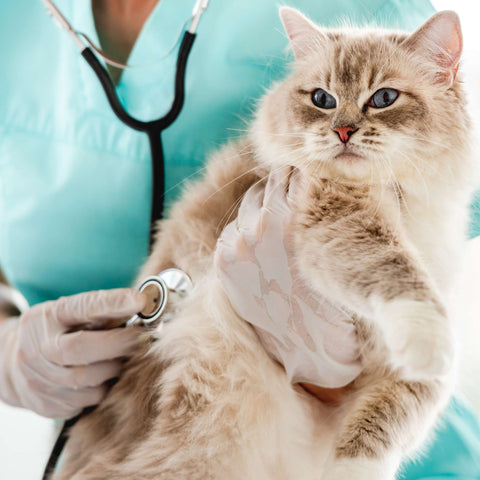Know the Signs! 10 Early Warnings of Cat Illness
Cats are beautiful creatures that bring joy to many of us. Whether we're cat owners or not, we all love to see them playing, sleeping, and amusing us with their playful antics. However, one thing we don't love is taking care of a sick cat. As much as we love them, we don't want to see them suffer.

Therefore, proper knowledge of the early warning signs of cat illness is essential for owners. Catching the signs early ensures prompt treatment and prevention of the situation from escalating further. In this article, we will discuss the most common early warning signs of cat illness so that you can recognize them before it is too late.
Changes in Appetite: If your cat starts eating less or more, it is a sign of an underlying medical condition. Losing appetite could be due to dental problems, gastrointestinal issues, or even cancer. On the other hand, an increased appetite could be an indication of hyperthyroidism.
Weight Changes: Feline obesity is a major problem in cats, and it comes with additional health problems such as arthritis, diabetes, and high blood pressure. Likewise, unexpected weight loss could mean metabolic or hormonal imbalances, kidney issues, or cancer.
Behavioral Changes: Your cat’s behavior changes like lethargy, hiding, restlessness, or aggression could be a telltale sign of an underlying medical issue. These behavioral changes could mean physical discomfort or pain.
Changes in Urination Habits: If your cat is experiencing difficulty urinating, going too frequently, or avoiding the litter box, it may indicate urinary tract infections, kidney stones, or bladder cancer.
Vomiting and Diarrhea: Contrary to popular belief, hairballs, vomiting, and diarrhea are not normal for cats and indicate underlying health issues. Vomiting could be a sign of gastrointestinal problems, infection, or even cancer. Likewise, diarrhea could indicate dietary sensitivities or gastrointestinal problems.
Respiratory Issues: Infections to the respiratory tract often manifest as coughing and sneezing. The disease could be anything from a mild respiratory infection to a more severe condition such as asthma.
Coat Changes: If your cat's coat looks greasy, dull, or is losing large amounts of fur, it could be due to dermatological issues or hormonal imbalance.
Mobility Limitations: If your cat has trouble moving their limbs, limping, or experiencing pain while trying to move, it may indicate arthritis or metabolic diseases.
Eye/Nose Discharge and Oral Problems: Eye or nose discharge can be viral or bacterial, and gingivitis and tartar buildup indicate poor dental health. The dental problems will result in bad breath, reduced eating, or rapid weight loss.
Mood and Energy Changes: Cats suffer from lethargy and lack of energy when they experience pain or physical discomfort. These mood swings indicate underlying health problems and lack of proper attention.
As a responsible cat owner, it is always better to detect health problems in your feline friend early. Vigilance in checking your cat for signs of illness helps you prevent severe illness. Different signs of cat illness often indicate different medical issues, and as a pet parent, you have to take care of them holistically. A vet visit is usually the first thing you should do as soon as you notice signs of cat illness. Always keep your cat up-to-date on vaccinations and regular veterinary check-ups. Remember, early detection is key to ensuring a long and healthy life for your furry friend!


Leave a comment